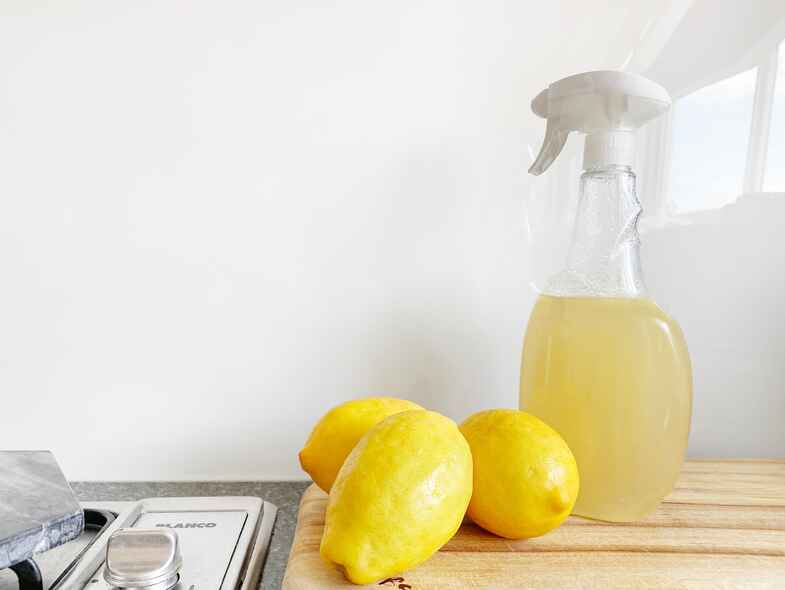Whether you’re a first-time renter or long-time tenant, periodic routine inspections are an inevitable but essential part of your tenancy agreement and the ongoing relationship with your property manager and landlord.
The purpose of a routine inspection is to check that you are taking care of the property – to ensure it is clean and maintained, isn’t being damaged, and that everything is in working order. Inspections are also an opportunity for renters to address repair and maintenance issues with the property manager. However, they shouldn’t be cause for panic or stress – all it takes is some regular TLC and a bit of preparation.
Here's our essential guide to a successful routine inspection.
Interior impressions
One of the first things your property manager will look for during a routine inspection is that you are keeping the property clean and tidy. While cleaning may not be your favourite pastime, it’s important to look after your home and keep it well-presented – from the inside out.
To avoid the rush of cleaning in the lead up to a routine inspection, try to stay on top of household chores rather than leaving them to the last minute. For example, schedule in time for putting household items away and add dusting, mopping and vacuuming to your weekly routine.
Prioritise the cleaning of high-traffic areas and address issues as they arise. For example, if there are small stains on the carpet, give them a spot clean straight away. If there are marks on the walls, wipe them down without delay.
The cleanliness of your bathroom will be a priority for your property manager during the routine inspection. A great way to keep this area clean is to keep sprays and sponges handy so you can give surfaces a wipe after use. It doesn’t take long to clean a mirror or wipe away residue, grime and debris on your sink, shower or bathtub – but it may in the future if you let it build up.
Your kitchen is another high-traffic area that should be cleaned incrementally. Save yourself time before your inspection and make a pledge to always wipe down benches, splashbacks and rangehoods after cooking and regularly sweep and mop the floors. Small but consistent cleaning throughout the kitchen will prevent dirt and food residue from building up.
One appliance not to forget is the oven – no one likes to spend hours removing grease and scrubbing baked-on food but it can be one of the most time-consuming appliances to clean if you don’t tend to it regularly. A handy tip to help keep your oven clean is to use a roasting tin or aluminium foil on the bottom shelf which acts as a drip tray. Also, wipe spills immediately and cover food while cooking if you can.
Don’t forget the exterior
Like your home’s interior, it’s just as important to keep the exterior clean and maintained throughout the entire tenancy – not just at inspection time.
Put some time aside on a regular basis to remove cobwebs, clean dust and dirt from windows and security screens, and sweep the porch and driveway. Be sure to remove rubbish and general clutter from doorways, especially shoes and household items. These small actions will significantly improve your property’s overall presentation and will create a great first impression on inspection day.
A neat and well-maintained garden will also be one of the areas that your property manager focuses on during a routine inspection. While you don’t need a green thumb, it's important to make an effort so your garden doesn't appear unkempt and overgrown. Stay on top of pruning, weeding, mowing and watering, and regularly rake away leaves, twigs and debris. Dedicate some time in your weekly calendar for these tasks – you’ll thank yourself come inspection time.
Address maintenance issues
A routine inspection is an important time for your property manager to identify any repairs or maintenance issues that need addressing. Equally, inspections offer an opportunity for tenants to raise issues that are not their responsibility or for problems that need addressing before they get worse and cause further damage.
While you clean and prepare for your routine inspection, take a bit of extra time to go through the property and make a list of anything that may need looking into – for example, visibly worn electrical wiring, ongoing water leaks, a regularly blocked sink or signs of mould and rising damp.
While it’s a tenant’s responsibility to ensure the property is clean, tidy and undamaged, it is the landlord’s responsibility to address and rectify structural, plumbing or electrical issues. Tenants play an important role in raising issues in a timely manner to ensure the property stays in the best possible condition.
Avoid damage and unnecessary wear
It may sound obvious but when you’re renting a property, tenants should make it a priority to prevent unnecessary damage. During a tenancy, tenants must take reasonable care of the premises and not intentionally or negligently cause or permit damage however, fair wear and tear is natural and expected, and allowances are made for reasonable use – but it is still important to be careful. Essentially, try to treat the house as if it were your own and anything you would do to your own property, do it there – and vice versa.
A few great ways to keep your rental property in great shape include taking shoes off before entering the home – this will help to avoid floor damage and dirty carpets. Likewise, opt for minimal damage wall hooks for hanging artwork and be careful with furniture and ornament placement around the house – items in high-traffic areas can be easily knocked and could cause damage to walls, doors or floors.





